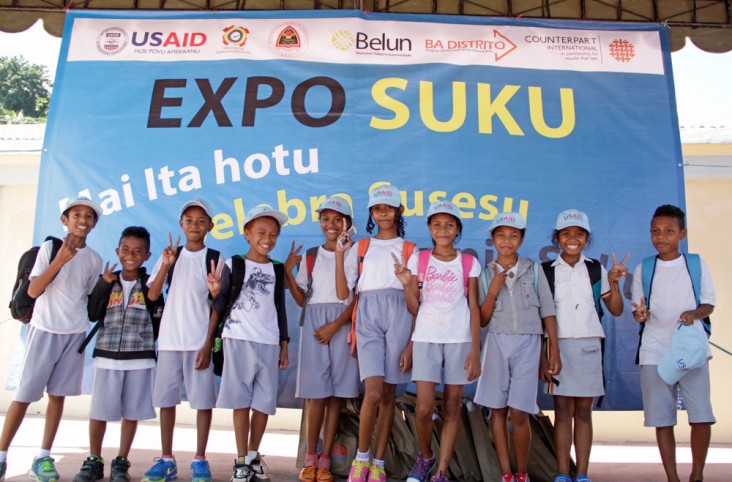|
Purpose: To strengthen human and institutional capacity in local governance and rule of law in Timor-Leste |
Location: Baucau, Covalima, Liquica, and Ermera municipalities; the Special Administrative Region of Oecusse-Ambeno |
|
Partner: Counterpart International; Sub-grantees: Tetra Tech DPK, BELUN, Judicial System Monitoring Programme, Justice and Peace Commission (Diocese of Baucau) Liberta, and Fundasaun Fatuk Sinai Oecusse |
Duration: September 2013 – September 2017 |
|
Cooperative Agreement: $7 million |
|
|
Partner Contact: Carolyn Tanner Chief of Party Email: ctanner@counterpart.org |
USAID Contact: Germano Boavida Project Management Specialist Email: gboavida@usaid.gov |
Background:
Timor-Leste, the world’s third newest democracy, has conducted seven free and fair elections since independence in 2002. While the country has made a number of significant gains in governance, legislative reform, state institutions, and citizen responsiveness, the Government of Timor-Leste (GOTL) continues to face considerable challenges. These include weak institutional and human capacity of government institutions; extreme dependency on the state’s petroleum fund; and high rates of poverty, unemployment, and illiteracy.

As a new nation facing numerous challenges, Timor-Leste is working to develop the capacity of nascent state institutions, improve public service delivery, and increase citizen’s engagement in the political process. The GOTL has developed a long-term justice sector plan and worked on a decentralization plan to improve local-level service delivery in rural areas; however, the successful realization of these plans will require steady political will, more robust organizational and human capacity at national and local levels, and greater ownership of the capacity-building process.
Through project interventions, the local government is learning how to better address community needs and deliver services more effectively, efficiently, and sustainably by working with partners at the local level -—municipalities, administrative posts, and suco (village) councils.
Key goals include: strengthening suco councils, helping local governments incorporate community needs into policies and improving access to justice. The project also solicits public opinion and raises awareness about the positive effectsof the decentralization process.
The project is reaching approximately 100 suco councils in four pilot municipalities and the Special Administrative Region of Oecusse, putting citizens at the center of political discourse and access to justice. The project works closely with the Ministry of Justice to strengthen local justice by building the capacity of non-governmental legal aid organizations, disseminating legal information, and strengthening district court systems. When the Government holds local elections, the project will work closely with the Electoral Management Bodies.
Aligning with USAID Forward to build local capacity and promote country ownership, Ba Distrito ensures that methodologies, approaches, and tools are institutionalized within implementing partners and beneficiary institutions, such as suco councils and district courts. The project uses tools such as the Organizational Capacity Building Process—a methodology aimed at measuring performance and structure of the government, civil society, media and academic organizations—to meet the institutional needs of local implementers, civil society organizations, and legal aid partners.








Comment
Make a general inquiry or suggest an improvement.